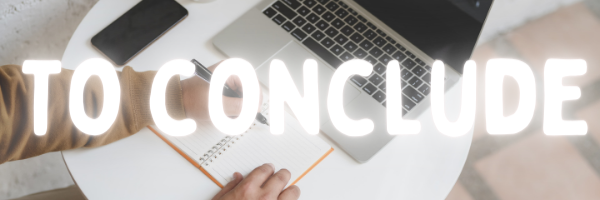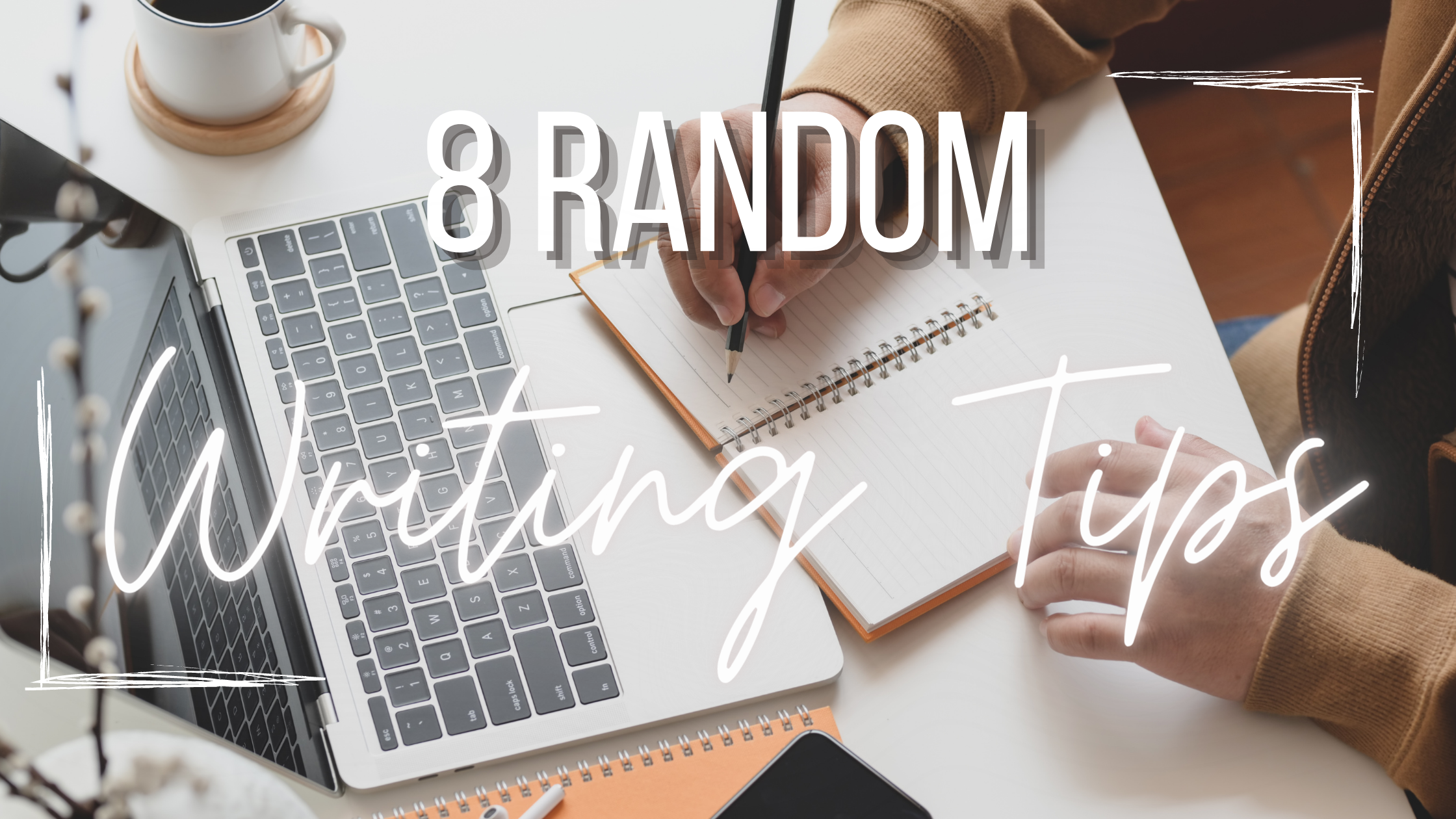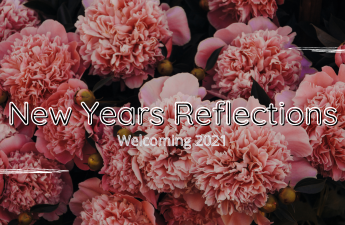Writing.
It’s fun and is an awesome way to exercise that neverending creativity of yours. Personally, I enjoy writing a lot (hence, I started a blog), so I decided to put together a few random tips coming from my own experience* as a writer. I like writing a variety of things, from short stories to poetry to the couple of novels I’m working on at the moment. I like writing blog posts obviously, and pretty much everything except papers for school.
When you’re forced to do it, the motiavation and creativity simply turns off I tell you…
Anyway, without further ado, let’s get to the very random tips!
*I use this word lightly, of course, and am probably no more experienced than yourself, but it’s always good to get someone else’s opinion on things! 🙂

Tip #1-Make moodboard aesthetics for your characters.
The first thing I need to say with this tip- USE IT SPARINGLY!
Do not, I repeat DO NOT spend time procrastinating your writing by making these mood boards and count it as writing. It obviously isn’t.
HOWEVER, I’m sharing it as a tip with you, why? Because it helps you get into the writing MOOD, and is a great way to get to know your characters more. It can get you excited about your writing.
This doesn’t mean you’ll be able to write your book the day after, especially if you’re just wasting your time constantly adding on to your boards.
I’m getting ahead of myself here. Ahem.
What is an aesthetic moodboard, and how would you go about making it?
Well, a mood board is basically a collection of images and text, usually in some form of a collage, that most of the time represents a certain topic, in this case, our character.
You can make it in multiple ways. My favorite method is Pinterest! You can make a board set as “Character-Your character’s name”, and you’d be all set to add pins!
“But Amany…Where do I begin?!”
I hear ya. Pinterest is filled to the BRIM with recipies, aesthetics, and countless other things.(hey! even my blog has a pinterest! check it out here!)
So what’re you supposed to start with?
Well, it’s best to start simple. What’s your character’s favorite color? How does it represent them? Simply search up “blue aesthetic” for example, and get right into it.
My favorite part about this, and the only reason I’m giving it as a writing tip, is that it helps you think of character quirks for your character, and make them less boring.
For example, say you have a character, Timmy. All you know you want to add in to Timmy’s persona is his looks- tall, dark hair, brown eyes- and that he’s obsessed with soccer.
If you’re someone who writes without an outline, like myself, then this is pretty much all you go into the story knowing.
Sounds a little boring right?
Timmy’s lack of personality will show through the pages and leak through the words. So, how does making a moodboard help with that?
Well, let’s say you’re looking for soccer aesthetic. You find a couple soccer balls, someone making a goal, etcetera etcetera.
Out of nowhere, a doodle shows up. (Pinterest does this sometimes)
And you think… “Oh. Maybe Timmy could draw!” And so, you add on this thing to his personality. Now he doesn’t just play soccer day and night. He also doodles, secretly, embarrassed of showing other’s his drawings because he thinks they’re no good. Then you find a random quote about sarcasim. “Oh. Timmy could be extremely sarcastic.”
So now, we went from soccer playing dark haired guy to soccer player who secretly likes drawing and is extremely sarcastic. Who would you rather read about?
Other things you can add into your moodboard are quotes, and also sometimes pictures of people. That’s why you only want a GENERAL description of them in your head, so you won’t be mad at not finding the perfect picture that matches the one you’re thinking of. Like if you search up ‘dark haired boy’ you’ll find tons of things, one even matching your liking. But searching up ‘Boy with brown hair, grey eyes (specks of green), big glasses, far-off smile, dimple in left cheek, tall” I don’t think you’ll get much results.
I made a download you can print and fill out as you go to help with not only your mood board, but also just getting to know your character in general. Download it below:
If you would like to see examples of some character mood boards, check out my personal Pinterest.

Moving on to Tip #2, Do writing sprints!
If you’re at all familiar with Nanowrimo (if you’re not, it’s super cool, check it out here, and check my account here! Buddy me and I’ll accept! ), which only recently ended, you’re probably also familiar with writing sprints.
It’s basically setting a certain time frame to write, usually about 15 or 20 minutes, and time yourself. You then make the commitment to WRITE for that amount of time straight, no breaks. (which is why I said about 20 minutes)
The reason I love writing sprints is that by commiting yourself to a certain time frame of writing, you’re basically telling yourself ‘it’s now writing time’ and you set a timer and you write.
I’ve gotten SO many words in by doing quick writing sprints when I can. I actually prefer to do a sprint no matter when I’m writing. I love putting timers while I write. I feel like it keeps me organized.
Some things you want to remember when doing writing sprints:
- Try and refrain from looking at your timer. It can not only waste your precious seconds but also, you might feel your writing motivation and drive drop if you see you still have so much time left. The same goes for checking your word count if you’re that type of writer.
- It’s okay if you have to stop and think while you write. Whether you outline your writing or not, you don’t know every single word that’s about to go on your page, so it’s totally okay to have to regroup yourself and have a quick thought about what you want to happen next. You’re still thinking about your writing for that amount of time, so it still goes!
- Don’t worry if this one thing doesn’t work for you! Time limits and overall forcing yourself to sit down and write isn’t the best way for everyone. I just wanted to share because it’s something that works really well for me.
- If you pause the timer, it kind of diminishes the whole purpose of a writing sprint. What if you were to simply take a 5-minute break while sprinting a race? I mean, I’m no runner (or very athletic person in general) but I assume you wouldn’t win or improve your time. Bottom line-no pausing if you’re committing to this. Just write! Everything that comes to mind! Write it!
So, basically, if you’re feeling like you’re low on your word count goals or writing little in general, set a timer and force yourself to squeeeeze out some words.

Tip 3- Use grammarly!
We all know, one of the worst parts of writing is the editing.
It’s just so agonizing and literally physically painful…
But we also all know that it must be done. Because the only thing worse than cliche writing is grammatically incorrect writing.
So, a simple way to fix your editing problems is GRAMMARLY!
I use it for everything. Even this blog post right now. It catches your simple mistakes and fixes up your sentence structure.
Couple things:
- Don’t blindly click correct to everything Grammarly corrects for you. Names that aren’t well known are often spell corrected(quite weirdly…) so make sure to add those to your dictionary.
- Even if you get Grammarly, that doesn’t mean you shouldn’t self proofread as well.
- Don’t take getting Grammarly as something to be embarrassed about! I’m sure we’ve ALL seen the ads by now, but just because you’re getting an extra ‘push’ with your grammar, it doesn’t make you a bad writer at all. It just helps make you better. Grammarly even gives you little explanations as to WHY something is wrong, so you’ll learn not to make the same mistake again.

Tip Number 4- When writing dialogue- use contractions!
That is- don’t instead of do not, won’t instead of will not, I’m instead of I am…the list goes on and on.
I was going to say ALWAYS use contractions, but I didn’t for a couple of reasons.
Firstly, you might have, say, a British character, or an otherwise posh character, who says things like ‘do not’ and ‘I am’ on a daily basis. Of course if it’s the voice of your character to NOT use contractions, than don’t use them!
But if your character is just someone who talks regularly, than using no contractions can make it all sound really static and not like an actual conversation.
Before you write down your dialogue, say it in your head (or aloud, no one’s judging you), and see it it sounds natural. Like you would say it. If the answer to that question is no, then there’s obviously something you need to change.
For example.
“Hi Tim, how are you today?”
While this would definetly be an ideal conversation starter, it just doesn’t seem probable.
More likely to happen would be –> “Hey, how’s it going?”
Notice, not only did I use the wonderful CONTRACTION, changing ‘how is’ to ‘how’s, but I also changed Hi to a word more often used by people in everyday life, ‘Hey’. I also took out the name, because, let’s be honest here, we rarely call out names when speaking to someone.
You should only use the name if you’re maybe introducing a new character, but that could easily be put into the narration as well.
So, overall, you want to pay attention when writing your dialouge, test it on your own tounge, see if it sounds normal, and USE CONTRACIONS!
Moving on…

Tip Number 5- When you’re feeling bored an uninspired, don’t force yourself to write!!
Firstly, not only will that writing probably not be your best, but you’ll also probably not feel any more inspired by the end of your writing session. If you have absolutely no idea what to write- don’t just stare at a blank document! Trust me, the only thing you’ll likely end up accomplishing is hurting your eyes.
Ideas don’t magically apear when you need them.
It’s almost quite the contrary actually, I seem to get my best ideas right before I sleep or while I’m in the shower….
Anyway, there are better ways than just writing down random, static, writing that you’re going to edit the heck out of later.
You might want to consider possibly brainstorming ideas instead of waiting for the ideas to come to you. Going back to my own problem of doing no planning whatsoever, everyday is literally just a brand new start of writing random new scenes that pop into my head. It’s only natural to get stuck every once in a while! Some people say that writer’s block isn’t real, and it’s something writers (and other creatives) made up as an excuse for not writing or being uninspired.
Personally, I think it’s definetly real but it’s not what we all think it is.
There’s not some sort of disease or magic that goes around to everyone who does something creative and blocks all thoughts from properly reaching the brain at random points in time.
However, there might be times when you’re stressed, tired, or distracted and simply can’t focus on being creative.
Take a break, take a walk, stare at the window if it helps! But don’t force yourself to make up random words that your heart isn’t in to.
Going back to the idea of brainstorming, if you have no idea what to write, maybe just take out a scrap of paper and write down a lit of things you want to eventually happen/be written in your story or piece at some point in time. Write them down in as simple and few words as possible.
For example- “Timmy breaks ankle, Timmy can’t play soccer, Timmy’s mom is missing…” etcetera, etcetera . Writing down a list like this can then help you know what to write in the moments when you’re uninspired, and even for more times to come with the same work of writing. You can figure out where to start instead of endlessly spiraling in your mind.
Now, keep in mind that for some people, forcing themselves to write is the only way they get some words in. I totally get that! This whole tip might even seem like a contradiction to my writing sprint tip. But, there’s a difference between setting a time to write and making yourself write no matter how little ideas come to mind.
Take this as a prerequisite to the other tip- If you’re feeling uninspired, then don’t do a writing sprint!
At least lightly brainstorm first to get yourself going.
Remember, we’ve all faced writer’s block, you aren’t alone.

Tip Number 6: Keep distractions as far away as possible while you write.
This may seem like a given. A really really easy thing to do.
But even just having your phone right by you on your desk counts as having a distraction near. I mean, one second you’re checking that one text, and the next you’re sending memes back and forth with your bestie.
There are other less obvious distractions too! Like my number one favorite thing in the world… FOOD!
Please don’t kill me for recomending this fellow food lovers, but if you’re someone who enjoys munching chips or an apple while you write, you might want to get rid of that habit.
Why?
Well, what do you use to eat?
Your hands.
And to type/write?
Also your hands.
Unless, of course, you’ve unlocked some sort of writing level in which you’ve learned to type with your toes (please teach me if so), then go on eating.
Ultimately, if eating while writing, you’re going to be taking frequent breaks to munch, and also messing up your keyboard with messier snacks. Snack before or after you write, or even while editing, just to make your writing session a smoother one. Maybe just keep a nice water bottle by you, to stay hydrated. Other than that, try your best to stay away from food whilst writing.
Other distractions to steer clear of include siblings, the TV( seriously, no you cannot multi-task), or keeping open other tabs open on the device you’re using to write.
Obviously, your sibilings might not be in your own control, but you can always give a heads up to your fam if you don’t want to be interrupted while you write. I sometimes like to make a paper and paste it on my door. I do this during tests (now that things are online) too. However, I’m unneccesarily extra sometimes, just a simple “I’m going to write now” will do.
As for the TV, it’s best not to try and multitask at all while writing- believe me, I’ve tried. The same goes for multiple tabs if you’re going to keep checking them.
All in all, keeping distractions away seems like a simple and obvious task, but it’s important to remember to do so.

Tip Number 7- If you’re stuck at a certain position in your piece of writing- make the worst thing you can possibly think o happen to your protagonist.
I want to make it clear that I did not think of this myself. I’ve seen it in multiple places, but it’s too helpful not to share.
A bad thing can span from a huge natural disaster to something as simple as your character stubbing their toe. (this one I actually did!)
Making something bad happen to your character opens up a window of sooo many new things to write. How will they react to this bad thing? How, if ever, will they recover? How are the other side charcters affected by this event?
I once saw a writing tip that said something alng the lines of start your scene one way and end it the opposite way.
This means, start a scene positively, and end it negatively, or vice versa. Somewhere in the middle, there has to be a switch going on. That big bad moment can be a great transition into negative, and can even work for positive too! The big revelation or aha moment of your character can be the result of a big change or overall bad thing happening to them.
It’s just a really fun way overall to get your creative juices flowing.

Now, for our eighth and final tip- Share your writing with the world! Get some critique, learn to take critique, and get motivated with the praise I’m sure you awesome writers will all get.
I don’t mean go and publish your book. (but do that too) There are literally TONS of free sites you can post your pieces of writing and get feedback on them from fellow writers.
I’ve been on a site called “Reedsy Prompts” for over five months now. I joined in quarantine. It gives 5 writing prompts every week to which you can submit one story to each if you’d like and there’s one winner each week, for a cash prize of 50 dollars! And, the best part is the amazing community that provides such valuable feedback in the comments sections. Check out my profile here, and take a look around the site! You might want to consider joining. Ever since I joined Reedsy I feel like I’ve learned to take critiques more.
My second site recommendation is Wattpad! The best part about Wattpad is that there are no limitations. I have a poetry book, and other things too on there personally. You also can update as you go. Wattpad’s great for readers as well! There are tons of underrated authors on there who seriously need to publish their stuff. Check my profile here.
Other than those two things, there’s also a bunch of other stuff. A couple I know of are All Poetry (for you poets out there), 51words, which is a monthly flash fiction story contest, 101words, same idea, and writerscafe.org has the same idea as Wattpad.
Your awesome writing deserves to be shared with the world, trust me.

Alright, quick recap:
Tip 1: Make aesthetic moodboards to get to know your characters
Tip 2: Do writing sprints
Tip 3: Use Grammarly
Tip 4: Use contractions in your dialouge.
Tip 5: When feeling uninspired, don’t force yourself to write, and don’t eb too hard on yourself
Tip 6: Keep distractions as far away as you can while writing.
Tip 7: As a fun way to get rid of writer’s block, make something bad happen to your protaginist.
Tip 8: Share your writing with the world
I hope this helped all of you! Tell me in the comments which tip is your favorite. If you’d like, drop me a link to your own works of writing and I’ll give it a read!
Here’s the get to know your character printout again if you missed it:
Keep writing, and stay creative!




Oooh great post!
thanks 🙂
Hey Amany!!!!
Thanks for the great advice!!! I’ve actually been making mood boards at school!!! With Grammarly, yeah I’ve got it after Rachel told me that it was free and it’s quite helpful because I normally miss errors when I correct it myself at times. THANK YOU!
Lot’s of goodness and love! Oh and Happy Writing!
~SS
Happy to help! That sounds so fun! Grammarly is definitely a life saver at times.
You too!
Yep! And I totes agree!
🙂